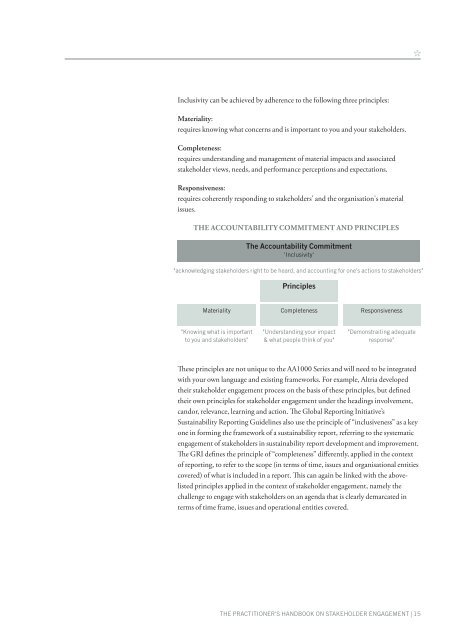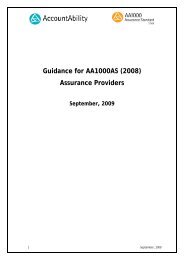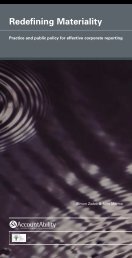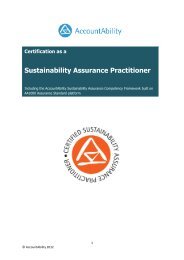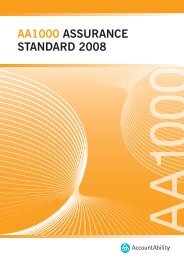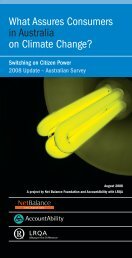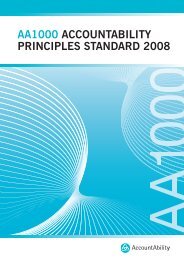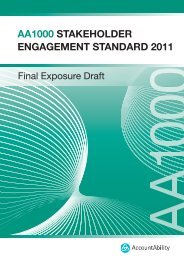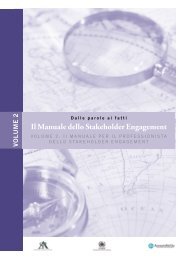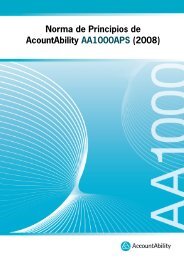The Stakeholder Engagement Manual Volume 2 - AccountAbility
The Stakeholder Engagement Manual Volume 2 - AccountAbility
The Stakeholder Engagement Manual Volume 2 - AccountAbility
Create successful ePaper yourself
Turn your PDF publications into a flip-book with our unique Google optimized e-Paper software.
Inclusivity can be achieved by adherence to the following three principles:<br />
Materiality:<br />
requires knowing what concerns and is important to you and your stakeholders.<br />
Completeness:<br />
requires understanding and management of material impacts and associated<br />
stakeholder views, needs, and performance perceptions and expectations.<br />
Responsiveness:<br />
requires coherently responding to stakeholders' and the organisation's material<br />
issues.<br />
THE ACCOUNTABILITY COMMITMENT AND PRINCIPLES<br />
<strong>The</strong> Accountability Commitment<br />
'Inclusivity'<br />
"acknowledging stakeholders right to be heard, and accounting for one's actions to stakeholders"<br />
Principles<br />
Hear that Materiality means: <strong>The</strong> organisation identifi Completeness<br />
es and addresses the most signifi cant Responsiveness<br />
impacts related to<br />
it's business operations and the stratergy, as well as the stakeholders that organisation identifi es and<br />
sddresses the stakeholders with signifi cant potential to infl uence the organisation.<br />
"Knowing what is important "Understanding your impact "Demonstraiting adequate<br />
to you and stakeholders" & what people think of you"<br />
response"<br />
Th ese principles are not unique to the AA1000 Series and will need to be integrated<br />
with your own language and existing frameworks. For example, Altria developed<br />
their stakeholder engagement process on the basis of these principles, but defi ned<br />
their own principles for stakeholder engagement under the headings involvement,<br />
candor, relevance, learning and action. Th e Global Reporting Initiative’s<br />
Sustainability Reporting Guidelines also use the principle of “inclusiveness” as a key<br />
one in forming the framework of a sustainability report, referring to the systematic<br />
engagement of stakeholders in sustainability report development and improvement.<br />
Th e GRI defi nes the principle of “completeness” diff erently, applied in the context<br />
of reporting, to refer to the scope (in terms of time, issues and organisational entities<br />
covered) of what is included in a report. Th is can again be linked with the abovelisted<br />
principles applied in the context of stakeholder engagement, namely the<br />
challenge to engage with stakeholders on an agenda that is clearly demarcated in<br />
terms of time frame, issues and operational entities covered.<br />
THE PRACTITIONER'S HANDBOOK ON STAKEHOLDER ENGAGEMENT | 15


